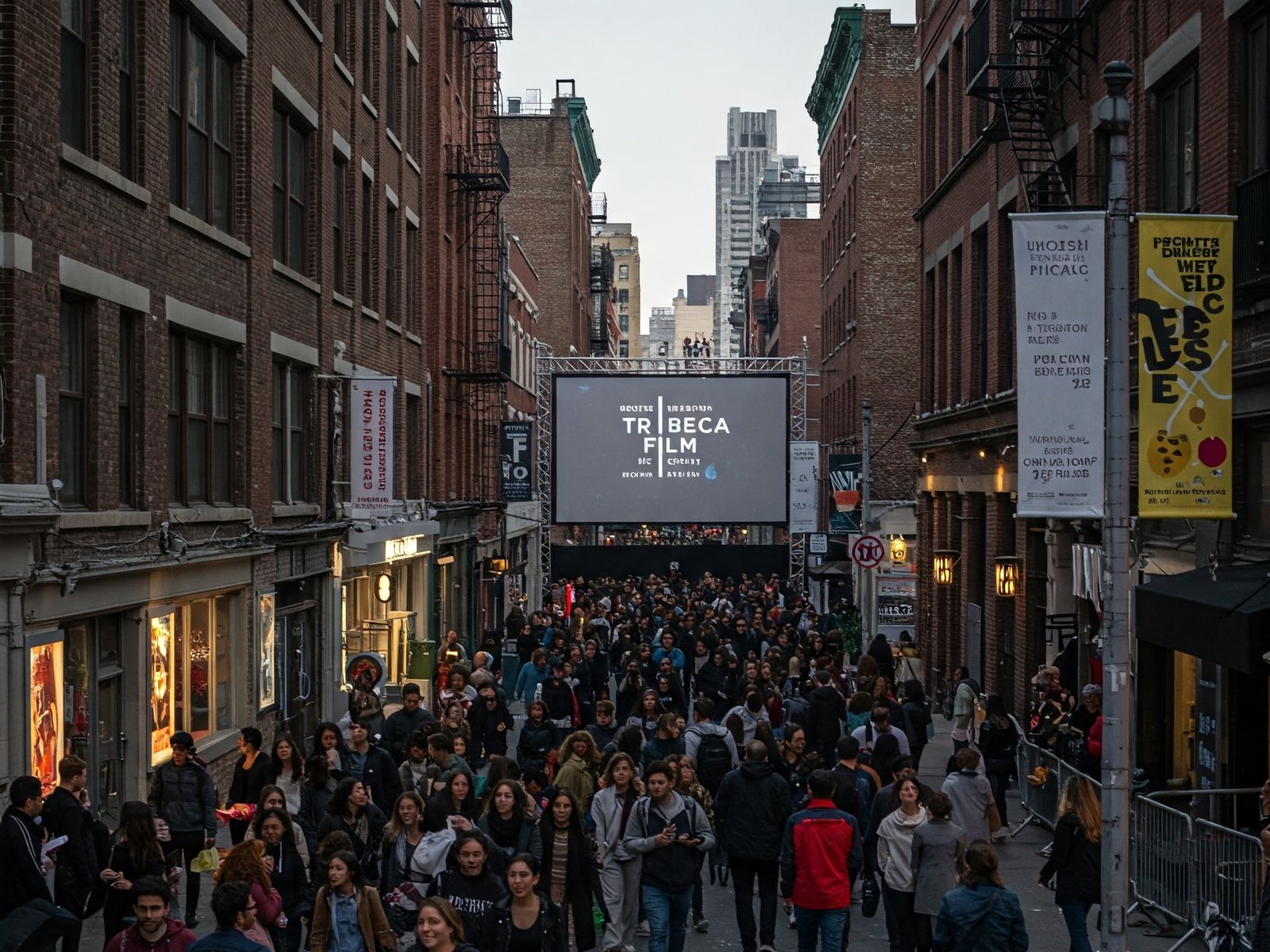Did you know that a terrorist attack led to one of the world’s most influential film festivals? In the aftermath of 9/11, Robert De Niro and Jane Rosenthal created the Tribeca Film Festival to revitalize their devastated neighborhood. What began as an act of resilience has transformed into a cultural powerhouse that discovers new talent and redefines what cinema can be!

How a Neighborhood Festival Became a Global Phenomenon
The Tribeca Film Festival started in 2002 with a simple mission: bring people back to Lower Manhattan after the tragedy of 9/11. But we never expected it would become THIS BIG! From 150,000 attendees in its first year to over 600,000 today, Tribeca has grown into a cultural juggernaut that rivals Cannes and Sundance.
Why does this matter? Because Tribeca doesn’t just screen films it DISCOVERS voices that would otherwise go unheard. It’s where unknowns become household names overnight. It’s where the films that will change our world get their start.
Not Just Another Red Carpet Event
Forget what you think you know about film festivals! While celebrities do walk the red carpet at Tribeca, that’s not what makes it special. What sets Tribeca apart is its dedication to independent voices and innovative storytelling.
Did you know that Tribeca was one of the FIRST major festivals to embrace virtual reality and immersive storytelling? While other festivals were still figuring out digital distribution, Tribeca launched its Immersive program in 2016, pushing the boundaries of what storytelling could be.
And during the pandemic? When other festivals canceled, Tribeca reinvented itself. They created drive-in theaters across New York City and pioneered hybrid festival models that other events now copy. That’s the Tribeca spirit: innovation in the face of challenges!
The Festival That Launched a Thousand Careers
Have you heard of “Transitory Lives,” the documentary that exposed human trafficking networks and led to actual policy changes? Or “Shut Up and Play the Hits,” which redefined music documentaries? These breakthrough films found their audience at Tribeca.
Some of the most important filmmakers working today got their big break here. Directors like Damien Chazelle (“Whiplash”), Nia DaCosta (“Candyman”), and Chloe Zhao (“Nomadland”) all had early works showcased at Tribeca before going on to reshape Hollywood.
But it’s not just about who becomes famous. It’s about whose stories get told. Tribeca has consistently amplified voices from underrepresented communities. In fact, in 2023, 48% of the films screened were directed by women and 36% by filmmakers of color numbers that put most of the industry to shame!
Beyond the Screen: Tribeca’s Secret Weapon
What many people don’t realize is that Tribeca isn’t just about watching movies it’s about CREATING them. The Tribeca Film Institute (before it closed in 2020) and now Tribeca Studios provide funding, mentorship, and distribution opportunities for emerging filmmakers.
Their programs have supported over 1,500 projects from 80 countries, investing more than $140 million in independent cinema. That’s not just watching culture happen that’s MAKING culture happen!
And did you know? Tribeca created one of the first film festival competitions specifically for content created on social media platforms. They understood before anyone else that the next generation of storytellers might be building their craft on TikTok and Instagram!
The Festival Experience You Never Imagined
Walking through Tribeca during the festival is unlike anything else in the world. Streets closed off for outdoor screenings. Heated discussions about film spilling out of cafes. Pop-up VR installations in unexpected places. Filmmakers from Kazakhstan chatting with producers from Brazil while waiting in line for coffee.
The festival transforms New York into a playground for film lovers. One day you might catch a documentary about climate activists, the next you’re watching an experimental short film projected onto the side of a building, and the next you’re in a VR headset experiencing life as a refugee.
This isn’t passive entertainment it’s a full cultural immersion!
Why Tribeca Matters Now More Than Ever
In a world where algorithms decide what we watch and studio franchises dominate our screens, independent storytelling is more important than ever. Tribeca stands as a powerful counterforce to homogenized entertainment.
The stories showcased here don’t just entertain us they change how we see the world. They build empathy. They expose injustice. They celebrate human ingenuity. And in our divided times, we need these shared stories more than ever.
From its birth as an act of healing after tragedy to its current role as a global tastemaker, Tribeca reminds us of cinema’s power to transform lives and communities. It proves that art isn’t just a luxury it’s essential to who we are.
So next time you hear about the Tribeca Film Festival, remember: it’s not just about movies. It’s about resilience, innovation, and the belief that stories can change the world. And THAT is worth celebrating!
For more insights and traditional wisdom related to cultural festivals, visit Wisdom Chaos.
